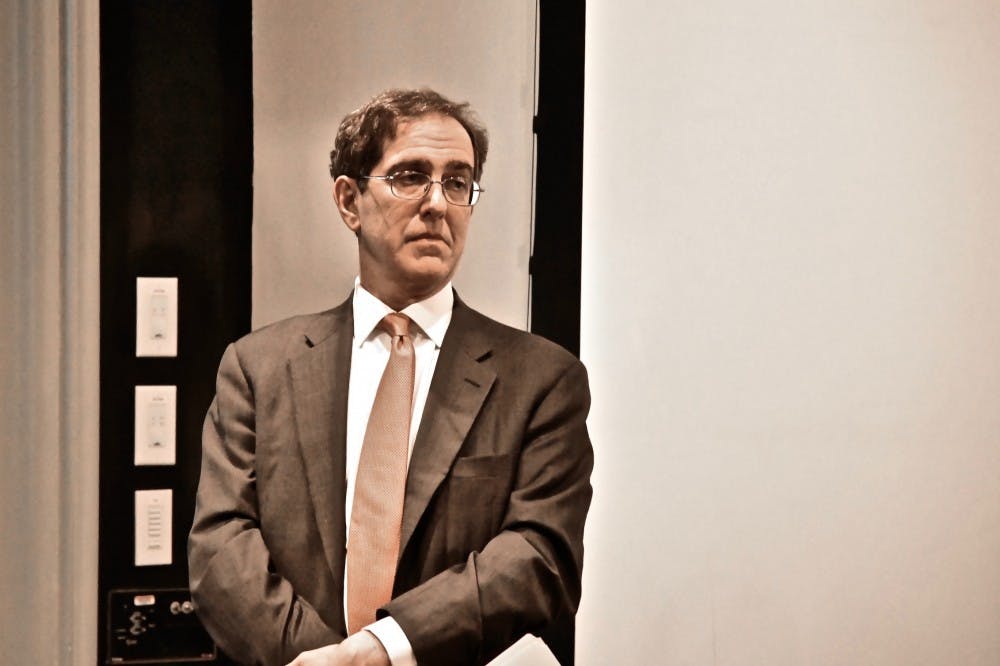The University will proceed with the fall 2020 semester as scheduled, but will wait until July to decide whether instruction will be on-campus or virtual, according to an email from President Christopher L. Eisgruber ’83 on Monday.
According to Eisgruber, University officials considered “whether to postpone the beginning of the academic term until later in the fall or even until January.” However, they decided against such a decision, instead planning to begin instruction in September as originally planned.
“Waiting would obviously yield more information, and we could hope that with time would come new advances in testing or treatment for the disease. That is only a hope, however, not a guarantee,” Eisgruber wrote. “We have therefore decided that we will proceed with the fall semester calendar as currently scheduled, whether we can teach residentially or not.”
The email added that the administration is asking faculty members to begin planning under the assumption that their classes will be online in the fall, adding that, in the event that residential instruction becomes possible, “we will be able to pivot quickly back to the instructional techniques more familiar to all of us.”
Even if students return to on-campus instruction in the fall, Eisgruber noted, “University life will be subject to significant restrictions for as long as the pandemic continues.”
Eisgruber added that while he recognizes the uncertainty that waiting until July, “can itself add to the distress of the pandemic,” he ensured the University community that waiting until then is the “most responsible way for Princeton to proceed.”
The deans of the University will soon be writing to all faculty, informing them of the resources available to support their teaching in the year ahead. Based on conversations with faculty and students about the six weeks spent online this spring, wrote Eisgruber, he knows that the “most crucial ingredient for successful teaching is personal engagement of students with faculty,” and that sustaining this personal engagement will require unique and additional effort in conditions of remote learning.
To that end, the University will be hiring additional preceptors and teaching assistants, with the aim of solidifying students’ experiences with interpersonal instruction.

Dean for Research Pablo Debenedetti and University Librarian Anne Jarvis have been appointed chairs of committees on ensuring the safe and responsible reopening of the University’s laboratories, libraries, and other facilities when state law permits.
As to resuming on-campus graduate advising and instruction this and in the fall, Eisgruber wrote that “We are optimistic that we can do so.” He noted, however, that exact dates may vary depending on the program, and additional information will be provided as it becomes available.
The email also explained that while fatalities from COVID-19 infections for people as young as the typical undergraduate are rare, young people can spread the disease to others.
“To bring back our undergraduates, we need to be confident of our ability to mitigate the health risks not only to them, but also to the faculty and staff who instruct and support them, and to the surrounding community,” Eisgruber wrote.

Eisgruber also addressed concerns about the University’s finances. He explained that while the University can sustainably spend 5 percent of its endowment each year, this year’s predicted spending of over 6 percent of the endowment presents a significant financial burden. He also pointed out that the endowment fund currently accounts for over 60 percent of the University’s yearly operating revenue.
“People sometimes mistakenly regard endowments as though they were savings accounts or “rainy day funds” that can be “tapped” or “dipped into” during hard times,” Eisgruber wrote. “That is an error: endowments are more like lifetime annuities. They must support active operations of the University each year and last as long as the University does.”
To that end, the University will reduce its operating expenditures, a move that will include salary freezes, tighter vacancy management, and a reduction in non-essential spending.
University officials plan to address community questions and deliver a “COVID-19 Update” at today’s Council of the Princeton University Community (CPUC) Meeting, which will be held via Zoom at 4:30 pm.
This story is breaking and will be updated as more information becomes available.








